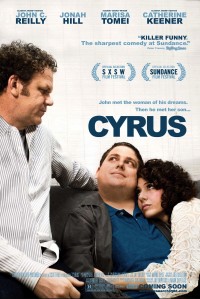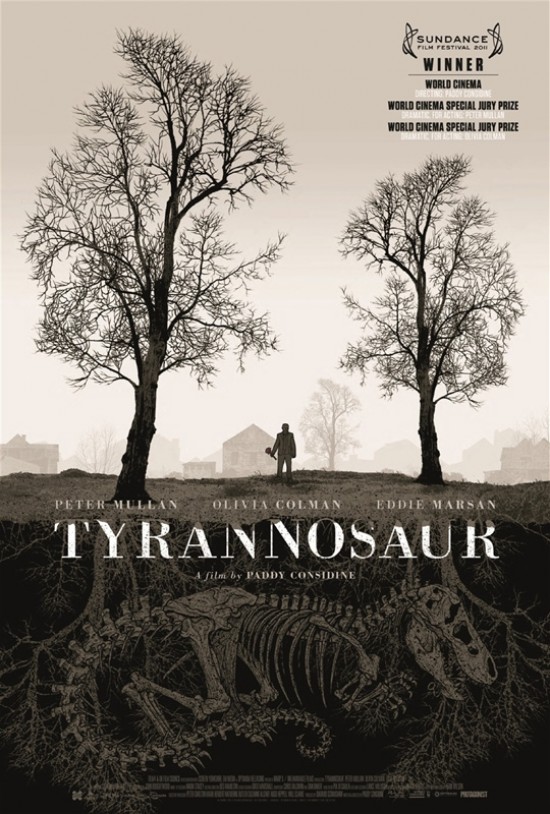by Gordon

Directed by: Mark & Jay Duplass
Released: 2010
Rating: R [language and some sexual material]
Runtime: 92 min.
Main Cast: John C. Reilly, Jonah Hill, Marisa Tomei, Catherine Keener
Rotten Tomatoes: 79% IMDB: 7.3/10

Cyrus may pass itself off as a comedy, but in actuality it’s at least as much of a heartfelt romance. As a sole comedy it would fall far short. Really, it’s not perfectly successful as either genre. But for falling somewhere in the middle, and in a style that does a good job of blending mainstream with independent filmmaking (and point of view), it is fairly successful.
It’s a familiar story: Guy named John down on his luck (Reilly) meets girl of his dreams named Molly (Tomei). They fall in love. But her reluctant son, Cyrus (Hill) does all he can to thwart their romantic advances. The fact that a man as ugly as John C. Reilly could be paired with a woman as pretty as Marisa Tomei is a little far-fetched in itself, but even moreso considering she’s the one to make the first move. But the idiosyncratic tendencies that Hill brings to his character really help the story become much more unique and many times hilarious. Some may call the guy an overrated one-trick-pony, a criticism I can understand, but for me, perhaps solely due to his Superbad days, even his quiet moments (and even expressionless faces) make me laugh.
The story wraps up a little bit quicker than its potential might have allowed, with a runtime of just an hour and a half. And that’s including a less-than-necessary backstory where we follow John’s progressive visits to his recently engaged ex-girlfriend, played by Catherine Keener, while looking for advice over his new relationship’s predicaments. She’s great in her role, but most of her scenes unfortunately only distract. On the upside, Tomei, though I’ve always found something unexplainably annoying about her, continues to prove that she’s a great actress.
The indie style by directors Mark and Jay Duplass, dubbed “mumblecore”, is a bit raw and amateur at times, but at others serves to accentuate the scene’s emotion, moreso than standard Hollywood filmmaking might have achieved. And editing props to a few scenes in particular where dialogue on top of montage imagery did well to express the feeling of a night or the mood of a relationship, while not veering far from chronological.
A light and semi-cheery soundtrack accompanies the more tender moments of the film, while breaking up the more satirical, humorous exchanges between Reilly and Hill. And it’s this same heartwarming note that’s exhibited for the film’s final scene, contrary to some level of expectation that the funny war between son and new boyfriend will continue up to the end. But the nice, small package that the ending actually signifies shouldn’t be too much shunned. This hybrid from the Duplass brothers, though at times as outrageous as a movie like the similarly-themed Step Brothers, manages to stay tame enough and realistic enough to leave its own lingering impression where some others have not been so successful.
Probably my favorite scene: http://link.brightcove.com/services/player/bcpid16829217001?bctid=79853181001













